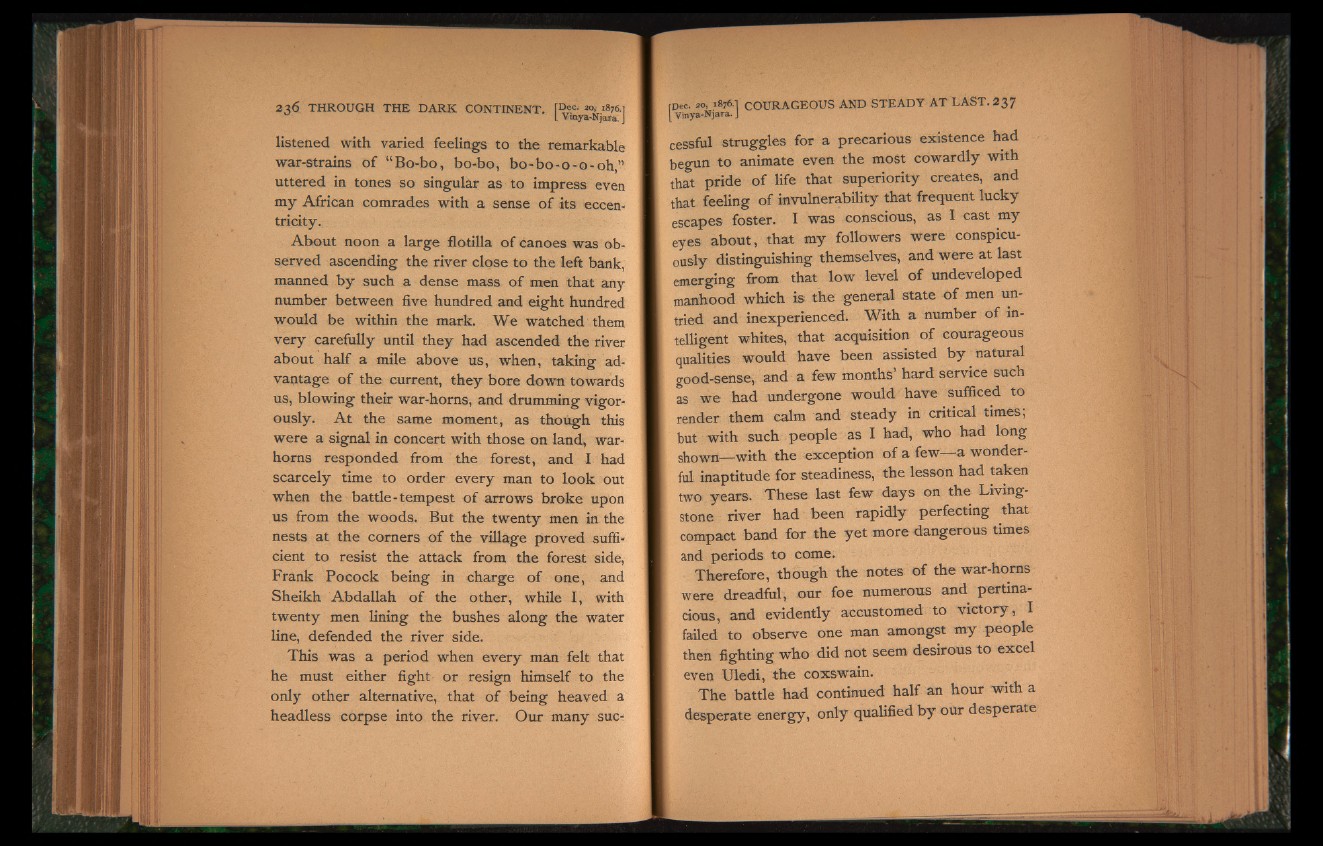
236 THROUGH THE DARK CONTINENT. P ec- 30>
L Vinya-Njara. J
listened with varied feelings to the remarkable
war-strains of “ Bo-bo, bo-bo, bo-bo-o-o-oh,”
uttered in tones so singular as to impress even
my African comrades with a sense of its eccentricity.
About noon a large flotilla of canoes was observed
ascending the river close to the left bank,
manned by such a dense mass of men that any
number between five hundred and eight hundred
would be within the mark. We watched them
very carefully until they had ascended the river
about half a mile above us, when, taking advantage
of the current, they bore down towards
us, blowing their war-horns, and drumming vigorously.
At the same moment, as though this
were a signal in concert with those on land, war-
horns responded from the forest, and I had
scarcely time to order every man to look out
when the battle-tempest of arrows broke upon
us from the woods. But the twenty men in the
nests at the corners of the village proved sufficient
to resist the attack from the forest side,
Frank Pocock being in charge of one, and
Sheikh Abdallah of the other, while I, with
twenty men lining the bushes along the water
line, defended the river side.
This was a period when every man felt that
he must either fight or resign himself to the
only other alternative, that of being heaved a
headless corpse into the river. Our many sucmec.
20, 1876-1 COURAGEOUS AND STEADY AT LAST. 237
| Vinya-N jara. J
cessful struggles for a precarious existence had
begun to animate even the most cowardly with
that pride of life that superiority creates, and
that feeling of invulnerability that frequent lucky
escapes foster. I was conscious, as I cast my
eyes about, that my followers were conspicuously
distinguishing themselves, and were at last
emerging from that low level of undeveloped
manhood which is the general state of men untried
and inexperienced. With a number of intelligent
whites, that acquisition of courageous
qualities would have been assisted by natural
good-sense, and a few months’ hard service such
as we had undergone would have sufficed to
render them calm and steady in critical times;
but with such people as I had, who had long
shown—with the exception of a few— a wonderful
inaptitude for steadiness, the lesson had taken
two years. These last few days on the Livingstone
river had been rapidly perfecting that
compact band for the yet more dangerous times
and periods to come.
Therefore, though the notes of the war-horns
were dreadful, our foe numerous and pertinacious,
and evidently accustomed to victory, I
failed to observe one man amongst my people
then fighting who did not seem desirous to excel
even Uledi, the coxswain.
The battle had continued half an hour with a
desperate energy, only qualified by our desperate